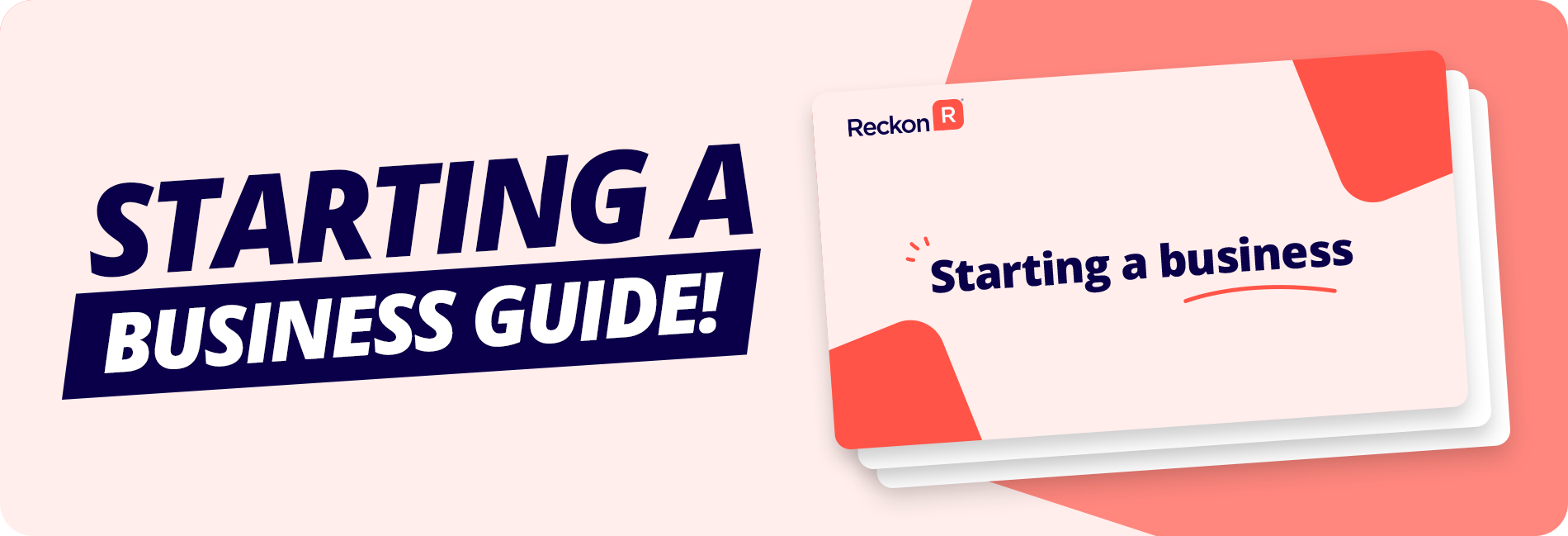Running a business and still trying to figure out which business bank account is the right one for you? There are actually a few options to compare. It doesn’t matter if you’re just starting out or scaling up your busy operations, there are different types of accounts to suit different businesses.
Here are the top five business bank accounts to compare, including what they do and the pros and cons.
1. Business transaction account
A business transaction account is the most fundamental bank account for small businesses in Australia. Much like a personal everyday account, it’s handy for sending and receiving money, paying bills, setting up direct debits, and issuing company debit cards. In short, this is an account to use for all your day-to-day business activities.
All major banks have business transaction accounts, and you can expect them to include features like online banking, bank feeds for accounting software (like Reckon), mobile banking apps, open banking, and more. Some accounts might charge you monthly fees, while others will be fee-free options depending on minimum balances or the number of transactions you make during a set period of time.
When you start looking around at business transaction accounts, make sure you look at:
- How well the bank integrates with your accounting/bookkeeping software
- How many ATMs there are in your area
- How the fees work (including penalties)
- Whether you can manage multiple account users.
Think of this account as being the ‘central hub’ for all your business finances, so it pays to compare different products before getting everything set up.
Business transaction accounts can be great for sole traders, partnerships, and companies that need a dedicated account for receiving income and paying expenses. They are also helpful for separating your personal and business finances, which makes bookkeeping and tax reporting much easier.
2. Business savings account
Savings business accounts can help you set aside surplus business funds while earning interest. Unlike a transaction account, a business savings account isn’t really used for everyday operations. Instead, it’s to build a financial buffer or save for future business expenses like company tax bills, new equipment, expansion efforts, or anything else.
Banks here in Australia have plenty of different business savings accounts to choose from, with differences in interest rates, minimum deposit requirements, withdrawal conditions, and more. Some accounts have tiered interest rates based on your balance, while others will need a notice period before you can actually access the funds. Online-only accounts might have higher interest rates than brick-and-mortar banks due to lower overheads, so take the time to shop around.
These business bank accounts are a good fit for small businesses with consistent revenue who want to earn passive income from their reserves. They’re also great for goal-based savings or when you expect to be hit with seasonal fluctuations in revenue.
To get the most out of a business savings account, make sure you compare:
- Interest rates
- Fees
- Withdrawal limits
- Customer service (including reviews and word of mouth).
It might be smart to have a savings account with the same institution as your transaction account to make transfers and overall financial management more straightforward. Some banks even let you ‘auto-sweep’ from your transaction account directly into your savings account.
Business savings accounts can be well-suited to businesses that want to do something with their idle funds or those looking to build up a cash reserve for short-term and long-term goals. They’re a low-risk way to make your money work harder while keeping it accessible.
3. Foreign currency account
Depending on the type of business you run and where you operate, having a foreign currency account might be a good idea. It lets your business hold and transact in currencies other than the Australian dollar. Essentially, it’s a must-have for companies that regularly deal with international suppliers, clients, partners or customers and want to reduce their exposure to foreign exchange fluctuations.
Major banks and some fintech providers have foreign currency accounts available in multiple currencies (i.e. USD, EUR, GBP, NZD). You’ll be able to send and receive payments in foreign currencies, which means you’ll avoid automatic currency conversion fees and can offer better exchange rates.
Small businesses involved in importing or exporting goods, freelancing internationally, or working with global contractors can get a lot out of a foreign currency account. It also means your business can invoice clients in their local currency, which might help secure sales and keep your client relationships happy and healthy.
If you’re about to start comparing different foreign currency accounts, look at:
- Currencies supported
- Transaction fees
- Conversion fees.
It’s also important to note whether the bank has forward contracts or hedging tools. Some banks will allow for multi-currency accounts, which consolidates balances in different currencies into a single account interface.
While a foreign currency account isn’t suitable for all businesses, for those with global operations – or aspirations – it can be a savvy financial tool to save on fees and lower your FX risk. Just be aware that interest is rarely paid on balances, and fees will be different between institutions.
4. Business term deposit account
A term deposit account lets you lock away business funds for a fixed term at a guaranteed interest rate. It can be an attractive option for small business owners with extra cash who want to earn a higher return without risking their principal.
You’ll find term deposits offered by major banks and credit unions, with terms ranging from one month to five years. Interest rates generally increase with longer terms and higher balances. Once you place your funds into a term deposit, you won’t be able to withdraw them until the maturity date (otherwise, you’ll be charged a penalty fee).
Term deposits can be handy for businesses with predictable cash flow who want to park funds they won’t need in the short term. They can also help small businesses divvy up savings for specific purposes, such as future upgrades or strategic investments.
Picking the best term deposit for your needs involves comparing:
- Interest rates
- Term options
- Minimum deposit requirements
- Any early withdrawal fees.
Some banks have business-specific term deposits with tiered interest rates as well.
While term deposits lack the liquidity of savings accounts, they do give you the certainty of fixed returns, which can be very appealing if markets are unstable. Just remember that they’re best used as part of a broader business savings strategy, not for operating capital.
5. Statutory trust account
Finally, let’s take a look at statutory trust accounts. These accounts are required by law for certain professionals and businesses that hold money on behalf of their clients. A few examples include solicitors, real estate agents, and conveyancers. Bear in mind, these are heavily regulated and must meet incredibly strict compliance standards.
The requirements for statutory trust accounts aren’t one-size-fits-all. Real estate agents in New South Wales, for example, have to open trust accounts with authorised institutions and regularly submit audit reports to their relevant regulator. Lawyers also need to maintain these accounts to protect client funds for settlements or disbursements.
You won’t be able to use this account for general business expenses, and you’ll need to clearly separate client money from business money. Funds in statutory trust accounts are not the business’s to use: they are held in trust and have to be managed with absolute transparency.
Most major banks have trust accounts. There aren’t that many features (e.g. no overdraft or linked debit card), but they should include automated reporting tools and secure portals.
If you’re starting a business in a regulated profession, take the time to find out whether you need a trust account. If you do, open one that meets your industry’s legal requirements. Failure to comply with trust account regulations could see you severely penalised, or even at risk of losing your licence.
In summary
While most businesses will start with an everyday business transaction account, it might be a good idea for you to also have a savings account, term deposit or foreign currency option. And for regulated industries, a statutory trust account isn’t optional – it’s a must. Do your research and choose the accounts that will make managing your business finances easier than ever.












































